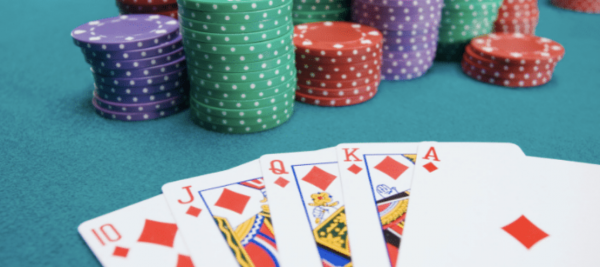Gamified Learning Tools Poker Players Are Using Between Sessions
Staying sharp at the poker table takes more than playing regularly. Smart players know that improving their game happens both on and off the felt. While playing poker hands helps, using the time between sessions wisely can make a big difference. That’s why many serious players turn to gamified learning tools that make training easier and more fun.
These tools are designed to help players think better, act faster, and understand decisions more clearly. They combine strategy and entertainment in ways that make practice feel less like study and more like play.
Why Poker Players Need Off-Table Practice
Playing poker well requires quick and smart decisions, but nonstop play can cause burnout. Gamified tools offer a fun, structured way to stay sharp without constant grinding.
Building Mental Sharpness Without Real Stakes
Poker involves high-pressure choices. But players can still practice decision-making in low-risk ways. Mental agility games and strategy challenges help keep the brain in shape without any stress from real chips.
Some players use logic puzzles or quick-thinking games. These teach focus, speed, and pattern recognition. They also reduce the emotional load that comes with actual poker sessions. As highlighted by research from Western University, cognitively demanding gameplay improves attention, memory, and problem-solving across different situations.
Training the Brain for Pattern Recognition
Great players spot patterns. They notice betting styles, player habits, and card combinations. Some gamified tools help train these skills using repetition and scenario-based choices.
They act like exercises for the brain. Over time, the player becomes faster at reading hands or understanding board textures. These tools often include score tracking, so players can measure growth.
Gamified Tools That Simulate Poker Thinking
Some tools mimic poker thinking without being actual games, helping with bluffing, odds, and strategy. They're useful for all skill levels to practice risk-free.
Hand Simulation Apps
These apps show a past poker hand and ask the user to make a decision based on the cards, position, and opponent behavior. After the player makes a move, the app gives feedback or shows what top-level players would do.
This method teaches players how to approach hands with logic instead of emotion. It also helps improve consistency in decision-making.
Range-Building Games and Quizzes
Knowing hand ranges is key in modern poker. Some tools quiz players on what hands to play in different positions or how to respond to a raise. These apps often include scoring systems and rankings to motivate users.
Here is how they help:
- Practice scenarios: Setups where players choose hands to play or fold
- Range building: Helps remember preflop ranges and raise sizes
- Leaderboards: Adds a game-like feel for progress tracking
Strategy-Based Games with No-Risk Play Features
Some strategy-based tools are designed purely for entertainment, using levels, rewards, and challenges to keep users engaged. They don’t involve real chips but still help sharpen focus, timing, and decision-making.
Sweepstakes slots online offer a relaxed way to test instincts and strategy in a pressure-free environment. These experiences let players enjoy game mechanics that encourage thoughtful choices without the usual stakes.
Apps That Turn Training Into Daily Habits
Learning sticks best as a habit. Many players use apps that turn lessons into daily routines, making study easy, even in ten minutes.
Habit-Tracking Poker Challenges
These tools set small tasks and offer rewards for completing them. For example, a player might be asked to complete five practice hands or answer three strategy questions. Each completed goal gives points or unlocks a new feature.
The aim is to keep motivation high and build regular study habits.
Micro-Learning Poker Tools
Some tools send short strategy tips each day. Others featured on the PokerListings blog, like DTO Poker Trainer and Poker Hands, offer flashcard-style quizzes to test rules or odds. These are useful for:
- Quick reminders: Hand rankings, blind levels, and poker terms
- Fast facts: Odds of hitting a flush, set, or straight
- Rule refreshers: Basic position play or betting flow
These tools are lightweight but effective, especially for new players or those coming back from a break.
Broader Game Types That Support Poker Skills
Other games can boost poker skills by improving focus, planning, and patience. They offer a helpful break while still building strategy.
Turn-Based Strategy Games
Games like chess, turn-based combat apps, or grid-based puzzles all require players to think ahead. They sharpen the mind for long-term planning and reading the opponent’s moves.
These games teach players to value position, pace, and prediction. They are ideal for sharpening discipline and focus.
Risk-Free, Reward-Focused Platforms
Platforms that use avatars, levels, or progress bars can build confidence and reward steady improvement. These features are often found in tools built for fun but still help train focus and timing.
Some key features include:
- Goal setting: Clear steps to improve and unlock new challenges
- Feedback loops: Instant results and suggestions
- Visual tracking: Progress meters, scores, and level badges
These features offer the same satisfaction as poker without real stakes, helping players stay motivated and relaxed.
What to Look for in a Learning Tool
Not all gamified tools are the same. The most helpful ones are easy to use, give clear feedback, and mimic real poker thinking.
Feedback and Replay Functionality
Look for tools that explain why a move was right or wrong. They should let you replay hands or view your stats. This helps you track progress and fix mistakes over time.
Being able to review your decisions is one of the fastest ways to grow as a player.
Balanced Gameplay and Realism
Training tools should feel like poker in spirit. They should reward patience, timing, and correct choices. If a game is too random or feels like luck, it may not help much.
The best tools match poker logic but remain fun and easy to use. They build muscle memory without creating stress or confusion.
Conclusion
Gamified learning tools give poker players a smart way to improve without always sitting at the table. They can help train thinking, sharpen memory, and build habits that carry over into real games.
Each tool offers a way to strengthen the mental side of poker, from hand simulators and range quizzes to browser-based strategy platforms. They also provide a break from pressure while supporting the focus and discipline needed for long-term success.
|
|















